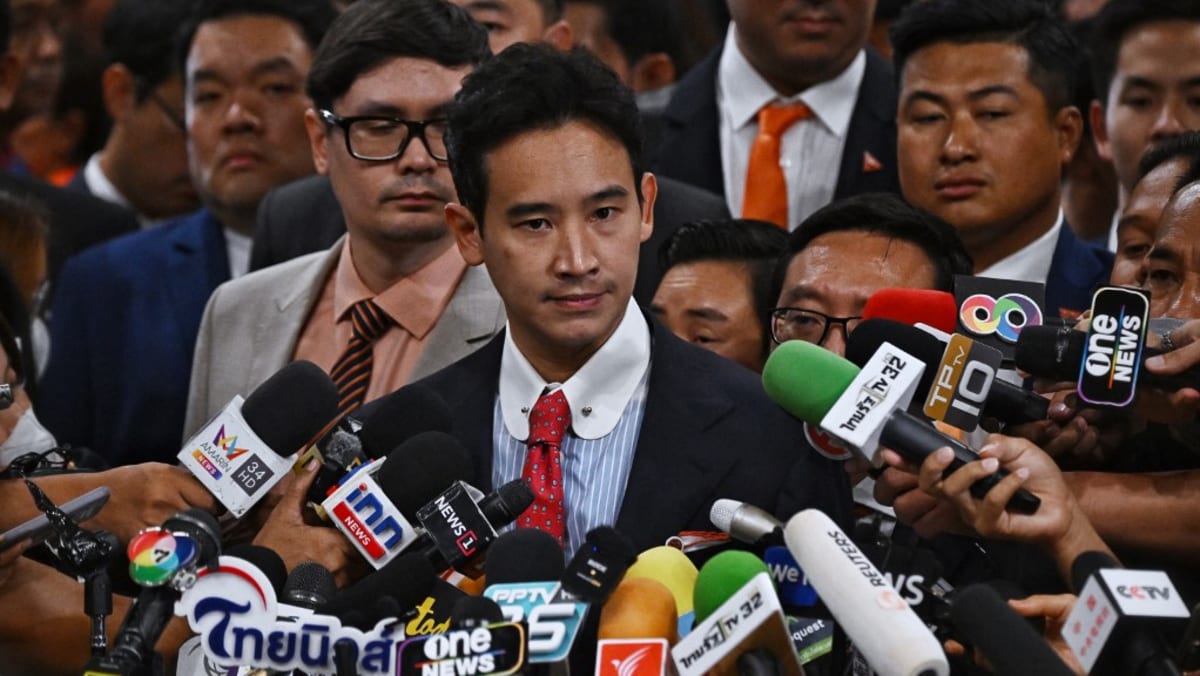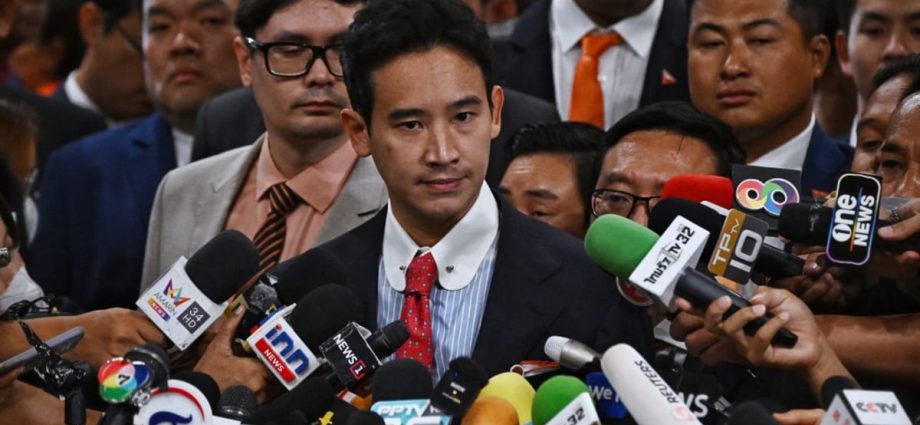
Voting started at about 4pm local time and lasted more than two hours. It took place after several hours of debate, which mainly centred on Move Forward’s policy to amend the royal defamation law.
Mr Pita explained that the amendment was to prevent the law from being used as a political tool.
Section 112 of the Thai Criminal Code, also known as the lese-majeste law, stipulates that whoever defames, insults or threatens the king, the queen, the heir-apparent or the regent shall be punished with imprisonment of three to fifteen years – the same penalty as for involuntary manslaughter.
Hundreds of political activists including children have been prosecuted with the law since 2020.
According to Mr Pita, his party does not plan to change its policy on the law.
“It remains the same, like what we’ve promised to the people,” he said after the parliamentary vote.
Since the selection of the prime minister was unsuccessful, the House of Representatives and the Senate will need to reconvene to vote again. The date is yet to be determined.
In an event where no prime ministerial candidate can be appointed for any reason, at least half of all parliament members – 375 – can request the National Assembly to start a process that could allow an “outsider prime minister’”.

